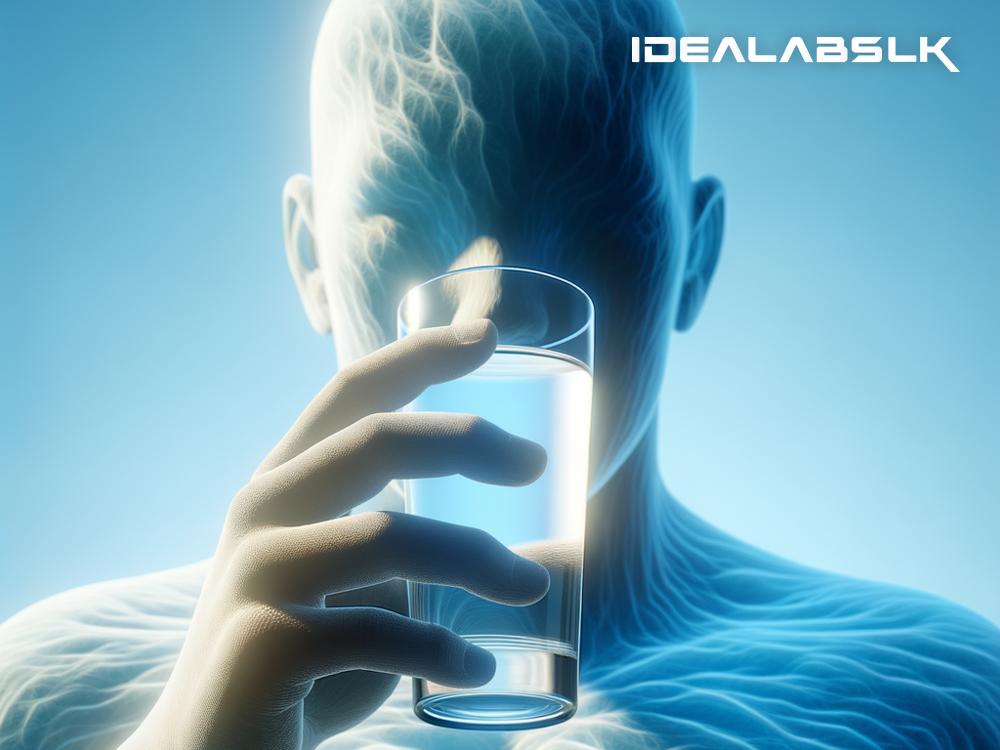The Power of Water: How Staying Hydrated Bolsters Your Brain
Have you ever felt like you're slogging through molasses mentally, where every thought feels like lifting a weight, and each decision is more challenging than solving a Rubik's cube? Before you reach for that umpteenth cup of coffee or consider a power nap, you might want to evaluate a simple, often overlooked factor: hydration.
Water isn't just essential for quenching thirst or cooling off on a hot day; it's a critical component of our overall well-being, especially our mental state. Let's dive into why staying hydrated is a game-changer for your brain and how it can positively affect your cognitive functions.
Why Your Brain Loves Water
Our bodies are made up of about 60% water, and our brains are even more aqua-filled, at approximately 75%. This means that even minor dehydration can have a ripple effect on our brain functions. When we're not drinking enough water, our brain cells lose efficiency, making it hard to focus, remember, and stay alert.
The Impact of Dehydration on the Brain
Mild dehydration – losing just 1-2% of your body's water – can impair your ability to think clearly. It's not just about extreme cases; even a small dip in hydration can affect your mental acuity. Here's how a lack of water can mess with your mind:
-
Reduced Concentration: If you find your mind wandering endlessly when you’re trying to focus, it might not be solely due to a short attention span. Dehydration can lead to a lack of concentration, making tasks that require sustained attention feel more challenging.
-
Memory Problems: Ever walked into a room and forgot why? Or struggled to recall someone's name? While several factors contribute to memory problems, dehydration can also be a culprit, affecting your short-term memory and recall abilities.
-
Mood Swings: Feeling irritable or more moody than usual? Check your water intake. Dehydration can impact your mood, leading to feelings of anxiety, irritability, and overall emotional instability.
-
Fatigue: That mid-afternoon slump might have more to do with your water bottle being empty than needing more sleep. Lack of hydration can lead to feelings of fatigue and lethargy, making it hard to get through the day.
-
Headaches: The brain sits inside a fluid sack that keeps it from bumping against the skull, and dehydration can decrease this protective layer, leading to headaches or migraines.
How to Stay Hydrated
Now that we know staying hydrated is crucial for our mental well-being, let's look at how we can ensure we're getting enough water:
-
Set a Daily Goal: Aim for about 8 glasses (64 ounces) of fluids a day, but remember, needs can vary. Listen to your body and adjust accordingly.
-
Keep Water Close: Always have a bottle of water at your desk, in your bag, or wherever you spend most of your time. If it’s within reach, you’re more likely to drink it.
-
Eat Water-Rich Foods: Fruits and vegetables like cucumbers, oranges, strawberries, and lettuce can boost hydration and offer a nutritious snack.
-
Track Your Intake: Use an app or a simple notepad to keep track of how much water you’re drinking. It can be rewarding to hit your daily goals!
-
Flavor Your Water: If you’re not a fan of plain water, add a slice of lemon, cucumber, or a splash of fruit juice to make it more appealing.
Hydration and Mental Health
Beyond the immediate cognitive benefits of staying hydrated, there’s also an emerging link between long-term hydration and mental health. Chronic dehydration may contribute to stress, depression, and anxiety, emphasizing the need for consistent water intake as part of a healthy lifestyle.
Final Thoughts
Water is not just a thirst-quencher—it's a brain booster. By maintaining proper hydration, you’re not only supporting your physical health but also setting up your brain for success. Whether it's enhancing concentration, improving mood, or simply keeping those mental gears running smoothly, water has a pivotal role in our cognitive functions. So next time you feel your mental clarity waning, remember, the solution could be a sip away. Stay hydrated, and let your brain thrive.

